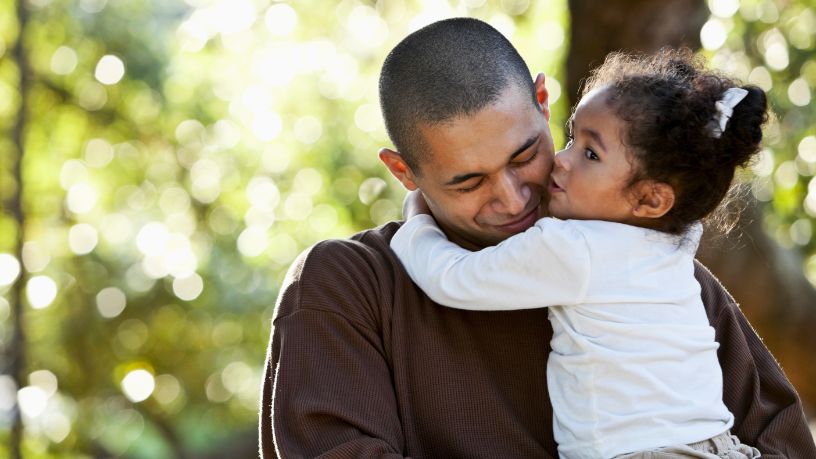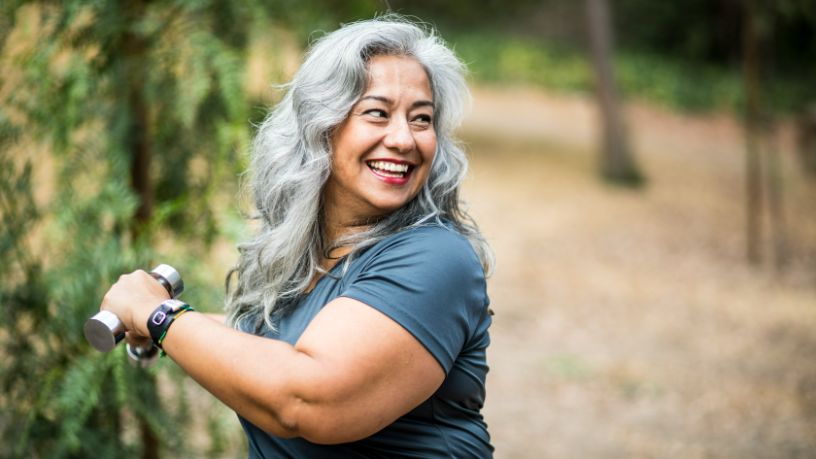On this page
Key takeaways
- More than 40% of Australian men will experience a mental health problem in their lifetime.1
- Despite being at a greater risk of suicide, men are less likely to seek professional help with issues of mental health.
- Maintaining healthy relationships, regular exercise and avoiding alcohol and drugs can help support good mental health.
Mental health is a growing concern among Australian men.
Men are 3 times more likely to die by suicide than women and less likely to seek help for any mental health condition.2
Knowing more about what may impact a man’s mental health, common signs that you or a loved one may be struggling and where to seek support can help prevent serious illness.
Mental health and men
One of the biggest challenges associated with men and mental health6 is that statistically men are less likely to seek help.2
Bupa Mindplace psychologist Dr Brett Quayle, says the reluctance to ask for help when men are experiencing a mental health issue could be due to many factors.
“Right from when we start to gender our kids we have things like ‘boys don’t cry’, which tells boys and men that it isn’t OK to show emotions. Traditionally, men are supposed to be the ones who fix things, not the ones who need help. This can make it really hard for a man to even identify his feelings, let alone ask for help in dealing with them.”
Because men are less likely to seek help for mental health challenges, they often go overlooked or undiagnosed, which can cause challenges even if they do seek help.3
“Long-standing behaviours are more difficult to change, and the likelihood of effective outcomes is reduced if the issue has been there for a long time,” says Brett.
Delays in seeking treatment can lead to more serious illness and consequences. Of the 9 Australians who on average take their own lives every day, seven are men.4
Common mental health challenges for men
Depression in men
Depression3 is the most common mental health condition for men, and the risks increase with age.5
Common physical signs of depression in men can include a drop in libido, difficulty sleeping and a change in appetite. Other signs can include persistent irritability, sadness or anger.
Anxiety disorders in men
One in 5 men will experience an anxiety disorder at least once in their lifetime.6
Common physical signs of an anxiety disorder in men can include insomnia, restlessness or agitation, muscle tension and shortness of breath. Other signs can include excessive worry or feelings of dread, trouble concentrating and forgetfulness.7
Substance abuse disorders and men
Substance use disorder is more common in men and is characterised by the ongoing use of a substance, such as alcohol, despite adverse effects it might be having on your life, such as an inability to think clearly, function at work or maintain relationships.8
Common signs that you may be struggling with a substance use disorder include:9
- the desire to use the substance more frequently
- needing more of the substance to get the same effect
- preoccupation with the substance
- avoiding work or social interactions to use the substance
- spending money you don’t have to acquire the substance.
What causes male mental health issues?
Many different factors can impact mental health. A specific event, such as losing a job, the breakdown of a relationship or the death of a loved one can be a trigger.10
Life stress relating to work, physical health or finances can also lead to challenges with mental health.
Some mental health conditions are genetic or caused by trauma or environmental factors.
Sometimes mental health is compromised for no clear reason.
For men, one of the primary triggers for poor mental health is loneliness, with middle aged men most at risk.
A 2023 study showed that more than 40% of Australian men reported feeling lonely.11
Studies show that social isolation, the end of a relationship and the belief that they need to be financially successful increase the risk of loneliness in men.12
“Loneliness is one of those things that can be compounded by increased alcohol and drug use or poor eating, which affects your sleep,” says Brett.
How to support male mental health
There are proven ways men can support their own mental health. These include things like staying physically active, talking about their feelings with someone they trust and giving back to the community.
“If you are feeling low, talking to someone you trust and feel respected by will always help, whether that’s a friend or loved one or a psychologist,” says Brett, who says it can be useful to think about our feelings as information.
“If you’re feeling something, be curious about it, not scared. It’s OK to not be OK and to ask for help.”
Other ways we can support good overall health include lifestyle choices such as:13
- Maintaining a healthy weight
- Reducing or stopping alcohol use
- Eating a healthy, well-balanced diet.
When and where to seek help
If you’re experiencing symptoms like low mood, trouble sleeping or wanting to withdraw from other people for more than 2 weeks, it might be a sign that’s it’s time to reach out for support.
A good place to start is by talking to your GP. They can listen, assess your symptoms and offer advice on the types of support that could help. This might include talking therapy with a counsellor or psychologist, lifestyle changes or medication.

Useful resources
You can speak to your GP about any problems that concern your mental health.
Lifeline Australia offers 24/7 crisis support online and on the phone at 13 11 14.
Beyond Blue offers 24/7 mental health information and support online and on the phone at 1300 224 636.
MensLine is a counselling service for men. You can get 24/7 support online and on the phone at 1300 78 99 78.
QLife offers LGBTQIA+ peer support online and over the phone on 1800 184 527.

At Bupa, trust is everything
Our health and wellbeing information is regularly reviewed and maintained by a team of healthcare experts, to ensure its relevancy and accuracy. Everyone's health journey is unique and health outcomes vary from person to person.
This content is not a replacement for personalised and specific medical, healthcare, or other professional advice. If you have concerns about your health, see your doctor or other health professional.
1Australian Institute of Health and Welfare. (2023). The health of Australia’s males.
2Health Direct. (2023). Suicide warning signs.
3Chatmon B. N. (2020). Males and mental health stigma. American journal of men's health.
4Beyond Blue (2025). Men’s mental health. Beyond Blue.
5Health Direct. (2023). Depression in men.
6Black Dog Institute. (2025). Signs and symptoms of anxiety.
7Better Health Channel. (2021). Anxiety and depression in men. Victoria State Government, Department of Health.
8Health Direct. (2025). Substance abuse.
9Mayo Clinic. (2025). Drug addiction (substance use disorder). Mayo Clinic.
10Health Direct. (2023). Mental illness.
11Botha, F., Bower, M. (2024). Predictors of male loneliness across life stages: an Australian study of longitudinal data. BMC Public Health.
12Australian Institute of health and welfare. (2024). Social isolation and loneliness.
13Better Health Channel. (2019). Mental illness statistics. Victoria State Government, Department of Health.
You might also like
Depression: Knowing the signs and finding help
Depression can look different for everyone. We spoke to a psychologist to find out how to recognise the symptoms of depression and where to get help.
What's the difference between anxiety and depression?
Anxiety and depression are common mental health conditions in Australia. Learn about the different signs and symptoms and where to get help.
5 ways to break the worry cycle and reduce anxiety
Anxious worrying can be destabilising. Discover 5 strategies to break the worry cycle, reduce anxiety and protect your mental and physical health.
Why mates matter: Building male friendships to protect your mental health
When it comes to men’s health, good mates matter. Explore easy ways to strengthen your friendships and make new ones too.





